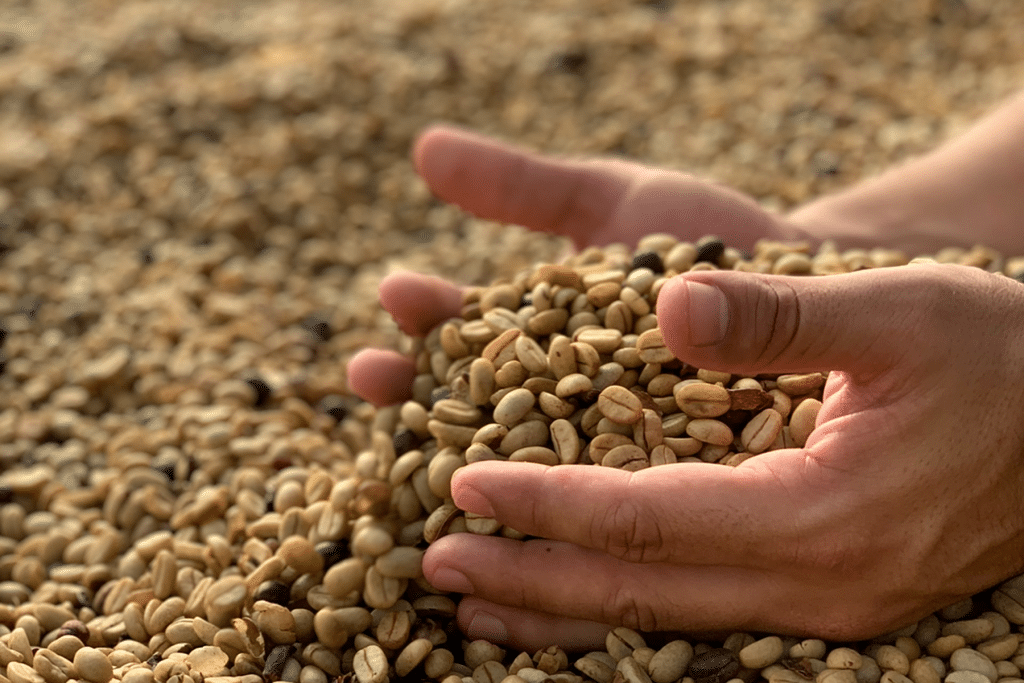A study released by Mintel Global New Products Database (GNDP) has found that in 2020, there was an increase in sustainable claims made in coffee launches, and an increase in the “in-home barista” trend. Mintel GNDP reports that 48 per cent of all new coffee, both hot and cold packaged, that was released in 2020 carried an ethical or environmental claim.
This doubles from the 25 per cent of sustainable coffee launches that was recorded in 2012.
“Undoubtedly, sustainability will be the defining issue for the coffee industry over the next 20 years. Consumer expectations of coffee brands will rise dramatically as eco-anxiety replaces pandemic paranoia,” says Jonny Forsyth, Associate Director at Mintel Food & Drink.
“Consumers are becoming more aware of carbon emissions and coffee is one of the worst offenders. The more activist-minded younger generation will show less tolerance for waste, especially pods that are recyclable but rarely recycled, with launches of ‘greener’ pods expected to grow fast.”
Pods and capsules, which account for 24 per cent of global coffee innovation, were the category’s most controversial format due to the volume of landfill waste they create.
Mintel GNDP says that only two in five pods, or 39 per cent of pods, carry a recyclable claim with only one in 10 pods or capsules, or 11 per cent, holding a biodegradable claim. The study found that only 10 per cent had a compostable claim.
The report says that across the food and drink market in Europe, which only saw 35 per cent of all new product launches in 2020 carry a sustainable claim, the coffee sector in Europe fares well in sustainability with 64 per cent of coffee launches in the region holding a sustainable claim.
“COVID-19 has made consumers more sensitive to inequalities, and most farmers are poorly paid despite coffee’s huge profits and use of fair-trade claims,” says Forsyth.
“Brands will need to help farmers navigate global warming to avoid the loss of supply and livelihoods. Brands will need to be much more ‘hands on’ and put their sustainable values and actions at the heart of their brand message.”
Mintel GNDP says that the pandemic has caused an eight per cent rise in total global packaged coffee launches during 2020, as compared to 2019. Of the fresh varieties, pods accounted for 24 per cent, ground for 23 per cent and beans for 15 per cent, in total making up nearly two thirds of collective global coffee innovation.
“The COVID-19 pandemic created a fascinating year for coffee, especially as it saw the reversal of a long-term trend. For years, coffee shops have taken share from retail coffee, but the pandemic forced drinkers to make more coffee in-home and replicate the quality of fresh on-premise brews,” says Forsyth.
This in home barista trends, according to Mintel GNDP, is more developed in western markets, defined as North America, Europe and Australasia, with pods, beans, and ground coffee accounting for 77 per cent of all coffee launches.
This is compared against the 44 per cent recorded across Asia, Latin America, the Middle East and Africa. In these regions, the dominant varieties include coffee mixes, which accounted for 20 per cent, instant coffee which made up 18 per cent and Ready-To-Drink (RTD) beverages which were responsible for 19 per cent.
The report also says the pandemic has forced consumers to make more coffee at home that attempts to replicate “the quality of the fresh, on-premise brews they are accustomed to drinking in coffee shops pre-pandemic”.
In the United Kingdom, Mintel GNDP finds that retail coffee sales, excluding sales from coffee shops or outlets, vending machines and self-serve outlets, increased by 13 per cent in 2020, as compared to 2019. 2020 also saw a 38 per cent decline in revenue for coffee shops.
“For many, the key to coffee making has moved beyond the desire for it to simply be ‘good coffee’. It’s now about brewing creative coffee, adding the same style and aspiration you would see in a coffee shop,” says Forsyth.
Despite the increasing in-home barista market, Mintel GNDP records a 15 per cent decrease in the number of global RTD cold brew coffee launches in 2020, as compared to 2019.
“We predict that in as little as two years’ time, this trend will be further developed as coffee-making technology improves and machine prices reduce,” says Forsyth.
“Moving forward, retail brands need to behave more like coffee shops in order to engage with consumers. This means using social media and new product innovation to offer customers choice, community, and storytelling.”
For more information, visit www.mintel.com.

